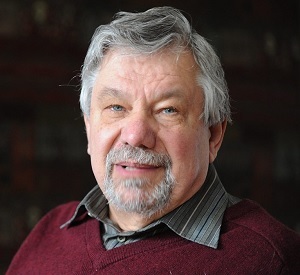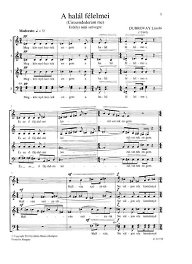The journey of musical works from author to performer
The task of the music publisher is to put manuscripts (be they paper or computerised) into a form that is legible, inspiring, and easy to use for performers; and to ensure the promotion, distribution, and legal use of the works.
With 75 years of experience behind us, we do this honourable work with consideration, commitment, and enthusiasm.
We thank the composers and music teachers who entrust their works to us.
Dubrovay, László
 In the initial phase of his career László Dubrovay turned with particular interest to electronic music. The experience he gained from his works created in electronic studios manifested itself in the form of special tone colour effects and noise elements even in his compositions written for traditional ensembles or solo instruments. From the 1990s he made a significant stylistic about-turn in his music, reverting to traditional genres and musical formations, and in his works certain elements of tonality reappeared, together with late Romantic melodiousness and – carrying on the Bartókian traditions – a characteristic modern Hungarian style.
In the initial phase of his career László Dubrovay turned with particular interest to electronic music. The experience he gained from his works created in electronic studios manifested itself in the form of special tone colour effects and noise elements even in his compositions written for traditional ensembles or solo instruments. From the 1990s he made a significant stylistic about-turn in his music, reverting to traditional genres and musical formations, and in his works certain elements of tonality reappeared, together with late Romantic melodiousness and – carrying on the Bartókian traditions – a characteristic modern Hungarian style.Biography
László Dubrovay was born in Budapest on 23 March, 1943. He studied composition with István Szelényi, Ferenc Szabó and Imre Vincze at the Budapest Academy of Music, graduating in 1966. Dubrovay continued his studies on a DAAD scholarship in West Germany (1972–74): he took courses in composition with Karlheinz Stockhausen and in electronic music with Hans-Ulrich Rumpert. In 1975, he was commissioned by Westdeutscher Rundfunk, Cologne, to realise the electronic composition Sóhaj (Sigh) in the electronic studios of WDR. Between 1976 and 2008, he taught music theory at the Budapest Academy of Music. In 1985, he spent a year in West Berlin within the framework of the Berliner Künstlerprogramm. László Dubrovay has realised electronic and computer music in the electronic studios of WDR, the West Berlin University of Technology, Freiburg, Stockholm, Bourges and Budapest. Délivrance, for organ, won first prize in 1973 at Szczecin, Poland. Succession, for orchestra, received second prize in 1974 in Triest.
His prizes and awards
Erkel Prize (1985, 1975); Bartók–Pásztory Award (1996); Artist of Merit of the Hungarian People’s Republic (1998); Hungarian Arts Award (2001); Artisjus Prize (2006); Kossuth Prize (2013)
 Deutsch
Deutsch English
English Español
Español Magyar
Magyar Polski
Polski Română
Română Slovenský
Slovenský Slovenščina
Slovenščina 中文
中文






























